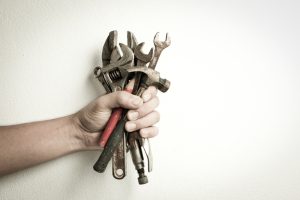We always encourage homeowners to pay special attention to their heating bills for each month. A sudden and unexpected uptick in heating costs often warn of a need for heater repair — it’s one of the most common ways to tell there’s a problem. A malfunctioning heater will often lose its energy efficiency.
There’s another reason to keep a close watch on those bills. A drop in energy efficiency can also indicate that a heating system is in a permanent decline due to age. Even with the best heating repair in Benton and regular heating maintenance, no heating system will last forever. Age and wear and tear will catch up to it. So when does a drop in your heater’s efficiency indicate that you’ve got a heater on the way out rather than just a heater that needs a repair? We’ll look at this question more below and offer advice you can use.
The Age of the Heating System
One of the key indicators that a drop in heater efficiency might signal the end of its lifespan is its age. Most heating systems, such as furnaces or heat pumps, have an average lifespan of 10 to 20 years depending on the type, quality, and maintenance history. If your system is nearing or surpassing this range, declining efficiency could be a sign that it’s simply wearing out. Components deteriorate over time, and even with repairs, they may no longer perform at their best. If your heater is in this age bracket, it’s wise to start considering replacement options.
A Trend in Continually Rising Costs
A single spike in heating costs might indicate a repairable issue, but a steady increase over multiple months suggests a deeper problem. As heaters age, they often require more energy to maintain the same level of performance. You might also notice that your home doesn’t feel as evenly heated as it used to, requiring you to set the thermostat higher to stay comfortable. This combination of higher bills and declining comfort is a telltale sign that the system is no longer operating efficiently and may be nearing the end of its service life.
The Cost of Repairs vs. The Cost of Replacement
When repair costs start piling up, it’s important to evaluate whether continuing to fix your heater is the best financial decision. A common rule of thumb is the “50% rule”: if the cost of a repair is 50% or more of the price of a new system, replacement is usually the better investment. New heating systems not only restore efficiency and comfort but also offer energy-saving technology that can significantly lower your monthly bills. A professional technician can help you weigh the costs and benefits to determine the best course of action.
The Professional Opinion
Ultimately, the best way to know if your heater’s efficiency decline signals the need for replacement is to consult a licensed HVAC professional. They can perform a thorough inspection, provide diagnostics, and offer expert recommendations. HVAC technicians consider factors like system age, repair history, current efficiency levels, and the overall condition of the unit. Their advice will help you make an informed decision, ensuring you don’t replace a system prematurely or sink money into unnecessary repairs.



